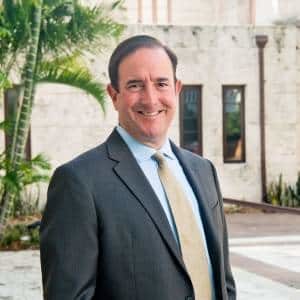
A 48-year-old man has been sentenced to 10 years in federal prison, followed by a lifetime of supervised release, after attempting to lure a minor for sexual activity, according to Fox 35. U.S. Immigration and Customs Enforcement (ICE) announced the outcome of the case, which has drawn attention to collaborative efforts between law enforcement agencies.
Court documents reveal that on July 25, 2024, an undercover detective from the Marion County Sheriff’s Office posed online as a 13-year-old girl. Despite being informed of the child’s age, Joseph Rocco Quaranta engaged in explicit conversations and arranged a meeting to carry out his intentions.
When Quaranta arrived at the agreed-upon location in Marion County, authorities apprehended him. During questioning, Quaranta admitted to volunteering as a Little League baseball coach, a revelation that has sparked outrage among local families.
On November 19, 2024, Quaranta pleaded guilty to attempting to lure a child for sexual purposes. His sentencing reflects the gravity of the charges and the commitment of officials to prioritize child safety.
David Pezzutti, Assistant Special Agent in Charge of ICE Homeland Security Investigations Orlando, emphasized the significance of holding offenders accountable. “The sentencing of this former Little League baseball coach sends a clear message that these actions will not be tolerated,” Pezzutti stated. He commended the collaborative efforts of the Marion County Sheriff’s Office, the Ocala Police Department, and the Florida Department of Law Enforcement in bringing Quaranta to justice.
Assistant U.S. Attorney Sarah Janette Swartzberg led the prosecution, supported by a comprehensive investigation involving multiple agencies.
This case has underscored the importance of vigilance and the role of community members and law enforcement in safeguarding children. Efforts to prevent similar offenses remain a top priority for authorities working to create a safer environment for all families.

Survivors of abuse often face overwhelming questions about what steps to take next. For those harmed by trusted figures like Little League coaches, understanding their legal rights can be a vital part of the healing process. In this interview, attorney Mike Haggard shares valuable information about the legal measures available to hold abusers and negligent organizations accountable, as well as the protections in place to support child sexual abuse survivors through their journey.
Editor Darla Medina: What steps can survivors take if they’ve been abused by someone in a position of trust, like a coach?
Attorney Mike Haggard: Survivors can file a civil lawsuit against the individual responsible for the abuse to seek damages for the harm they’ve suffered. Beyond that, they may also have claims against organizations that failed to properly vet, train, or supervise the abuser, especially if there were warning signs or prior complaints that were ignored.
Medina: Are there any unique aspects of Florida law that support survivors in these cases?
Haggard: Florida has strong legal protections for survivors. For example, there’s no statute of limitations for certain child sexual abuse cases, which means survivors can come forward no matter how much time has passed. Additionally, survivors can often file anonymously to protect their identity during the legal process.
Medina: What would you say to a survivor who is uncertain about coming forward or pursuing legal action?
Haggard: My advice is to start with a confidential consultation with a lawyer experienced in these types of cases. It’s a safe way to understand their rights and options without committing to anything right away. Coming forward can be an empowering step, and survivors should know they have people ready to support them through the process.
If your family has been impacted by the actions of a Little League coach, know that you are not alone. Legal options are available to hold those responsible accountable and to seek the justice your loved ones deserve. Contact us today for a free and confidential consultation to better understand your rights and how we can support you through this process. Your voice matters, and we are here to help.
 info@legalherald.com
info@legalherald.com